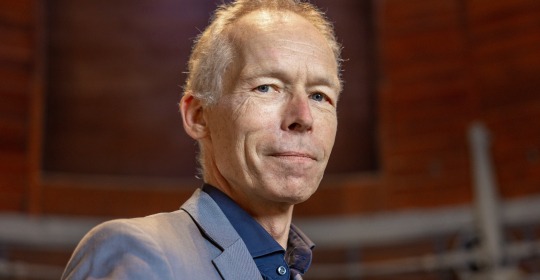Below is the introduction to our latest newsletter. To read newsletters in full, sign up now or subscribe on Linkedin.
Dear Planetary Steward, Dear friend of the Global Commons Alliance,
Congratulations to GCA SteerCo member and Earth Commission co-chair Johan Rockström, who has been awarded the 2024 Tyler Prize for Environmental Achievement, for leading the team of international researchers that originated the planetary boundary framework in 2009.
In a Mongabay interview, Rockström outlines how the framework quantifies safe limits for Earth systems, and why it’s a security issue for humanity: “Staying within planetary boundaries gives us stable societies, food security, water security, and reduces conflicts. Placing planetary boundaries at the UN Security Council positions sustainability, climate, biodiversity, water, where it belongs — in security.”

GCA SteerCo member and Earth Commission co-chair Johan Rockström
Rockström also explains how the Earth Commission has gone “one step further” than the planetary boundaries by measuring justice along the same control variable in the Safe and Just Earth System Boundaries, which he calls “a unique breakthrough.”
Last week the sixth session of the United Nations Environment Assembly (UNEA-6) in Nairobi concluded with 15 resolutions adopted and a Ministerial Declaration to help restore harmony between humanity and nature, aimed at improving the lives of the world’s most vulnerable people. The outcomes follow a new EU target to restore at least 20% of the EU’s land and sea areas by 2030, and all ecosystems in need of restoration – over 80% are in poor shape – by 2050. But this hard won headway must keep up with, and overtake, the damage unfolding across the world. A new study published in Nature finds human activity has pushed the planet’s freshwater cycle to the limits, with the planetary boundary for freshwater likely to be surpassed by mid-century.
The opportunity for business leaders to step in and restore the natural resources they depend on – like water – now is crystal clear. Yet, despite the costly risk of inaction, most of the corporate world is sitting back. On deforestation for example, 30% of Forest 500 companies and 55% of Forest 500 financial institutions still do not have a single publicly available deforestation commitment, according to Global Canopy’s 10th annual Forest 500 report released last week.
Global companies are also responsible for methane leaks which contribute 30% of today’s warming. In response, this week a SpaceX satellite went live that can spot methane leaks by oil and gas companies and in so doing hold them to account. Acting quickly on these leaks would make a significant contribution to emissions reductions.
With the biggest election year in history forefront in our minds, each new world leader represents a potential giant leap forward – or two steps back – on climate and nature action, and therefore in shaping our shared security agenda. In a world rife with deadly conflict, action to stabilize the Earth system has never been more important.
This week’s Super Tuesday in the US sets us up for a Biden / Trump rematch later this year. Whether or not we see round two of President Trump following the November U.S. election will have major reverberations on how quickly we regain a safe and just planet.
But whatever the politics, thousands of individual actors, coalitions and communities around the world will keep focused on shaping a safe and just future. And we will continue to bring science-based action to the ground, joining forces with businesses, financial institutions, local governments, scientists and innovators the world over to make it count.
With all my best wishes,
Jane
Subscribe now and read the rest of our bi-weekly newsletter, including news across GCA such as:

